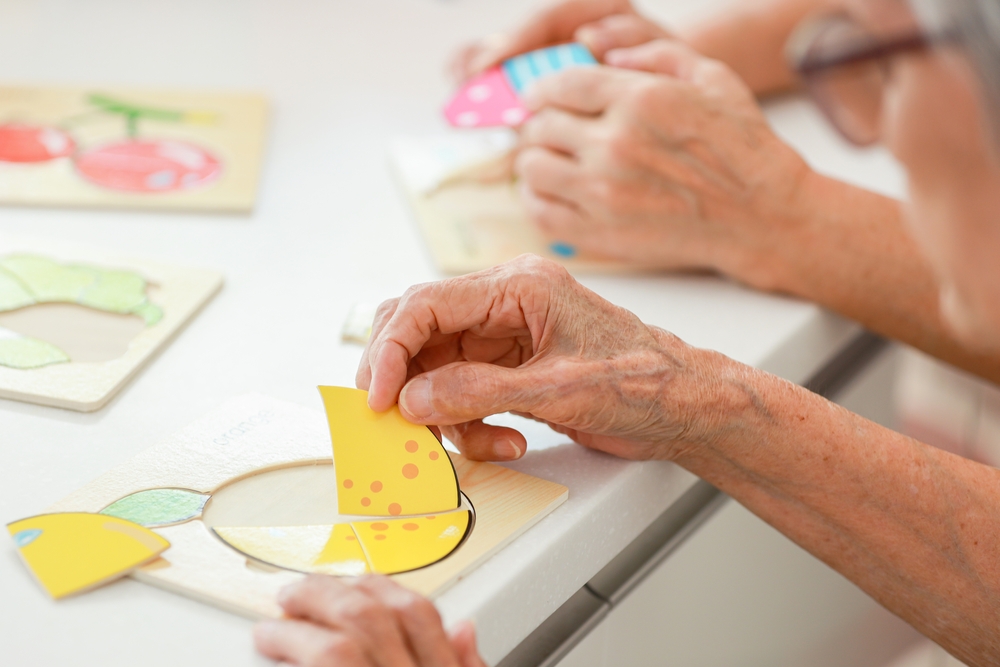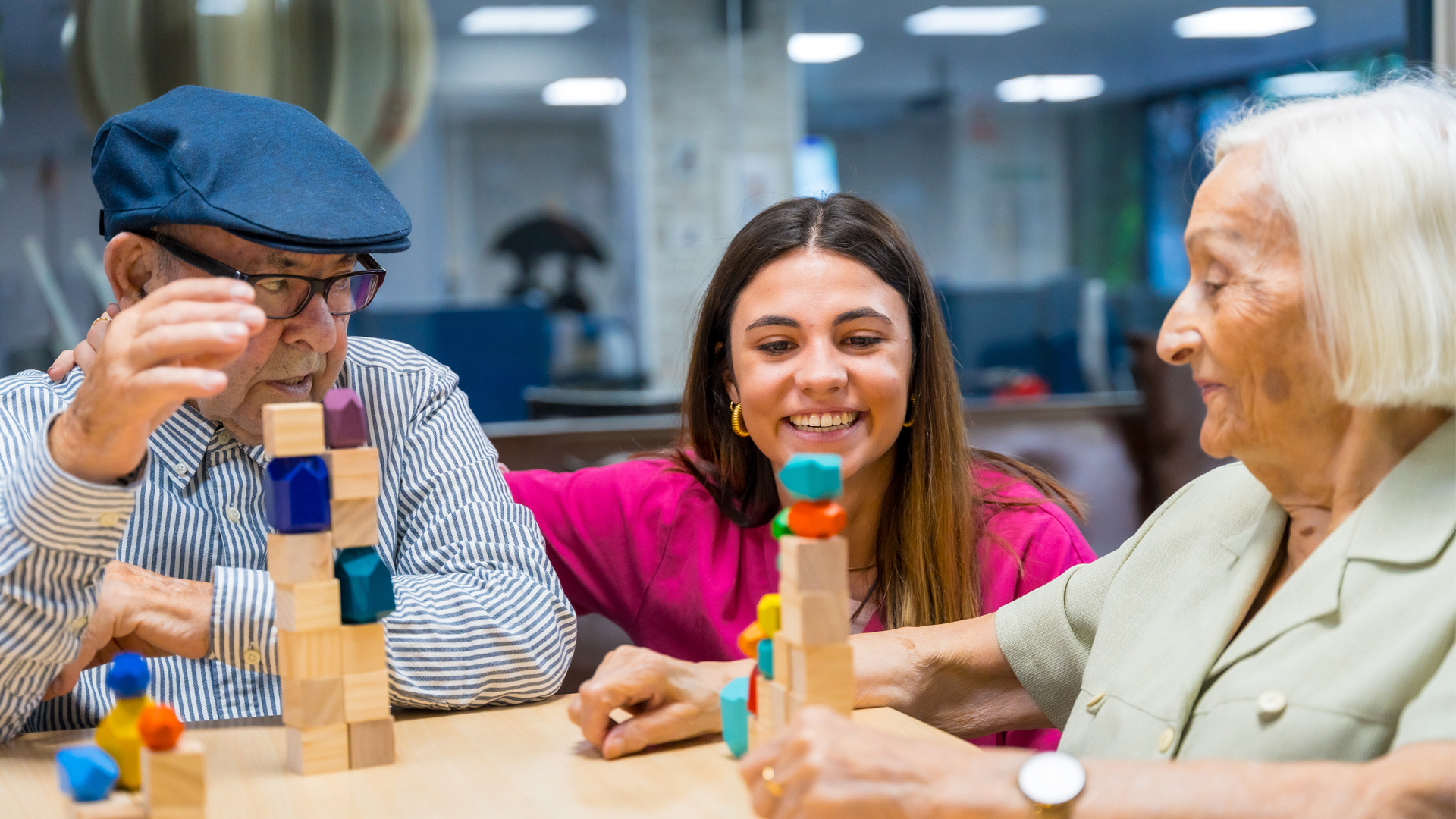Caring for those with cognitive function impairments like Alzheimer’s and dementia can be challenging. We often want to help, but are unsure how to improve the quality of life for the older adults we love. Fortunately, something as simple as a memory game is thought to slow the progression of some neurological disorders. According to recent studies, memory exercises can help delay the onset of dementia: “When people keep their minds active, their thinking skills are less likely to decline, medical research shows.” What are some useful memory exercises for seniors with dementia, and how can you use them to help your loved one?
Benefits of Memory Exercises
Keeping your loved one’s mind engaged and active with brain games has many other benefits for older adults.
Active brains, especially ones engaged in learning new things, are thought to grow new brain cells and add more connections between neurons. This reserve of cells and increased communication may slow down the onset of dementia because as the condition impairs brain function, the body still has resources to draw on.
Playing interactive memory games also helps retain (and even grow) social skills. Feelings of belonging and companionship can give older adults an incentive to participate and stay active. Areas like emotional well-being can also improve.
Choosing the Right Memory Exercises for Older Adults with Dementia
It’s critical to choose suitable memory games for the older adult in your life. Trying to entice them into playing poker if they hate card games may not work too well. Selecting activities they enjoy will give you a much better chance of successful engagement.
As dementia progresses and memory loss occurs, your loved one may lose the ability to participate fully in some activities. Because keeping them engaged is so critical, it can be better to modify the activity or break it down into manageable parts rather than stop doing it altogether.
Above all, refrain from choosing games or activities beyond a person’s abilities, as this can bring on a feeling of failure and stressful frustration. Mental and physical exercise can be good ways of removing attention from the causes of stress.
Brain-Stimulating Activities for Older Adults
There are many productive ways to engage older adults. Custom jigsaw puzzles that use pictures of favorite places or people can be a stimulating choice. Other popular activities and games include:
- Reading aloud and discussing what was read.
- Visiting museums and encouraging comments on the exhibits.
- Taking a course to learn something new.
- Learning a language from a one-on-one tutor.
- Playing musical instruments, especially from memory.
- Board games are socially interactive.
- Crossword puzzles are intellectually stimulating.
If you’re unsure where to find games suitable for seniors with dementia, check out the Alzheimer’s Store for a selection of puzzles, board games, and more.
A Specialized Caregiving Experience in Los Angeles, California
Social participation, communication, and interaction with others can be as meaningful as direct benefits from memory games and brain exercises. Professional, warm-hearted in-home care for those with dementia is available. Our thoroughly vetted and highly trained caregivers will provide personalized care that grows with your loved one’s needs.
We engage with the individual behind the condition to improve their quality of life while giving you the help you need to remain rested and positive. Contact Legacy Homecare LA now to book a consultation.






